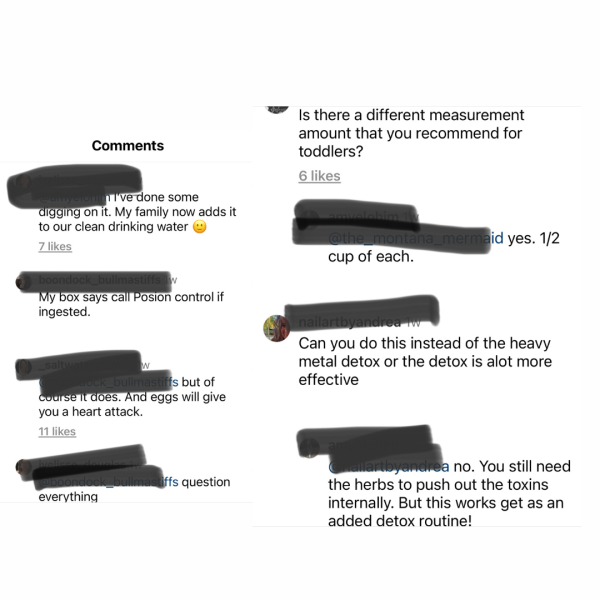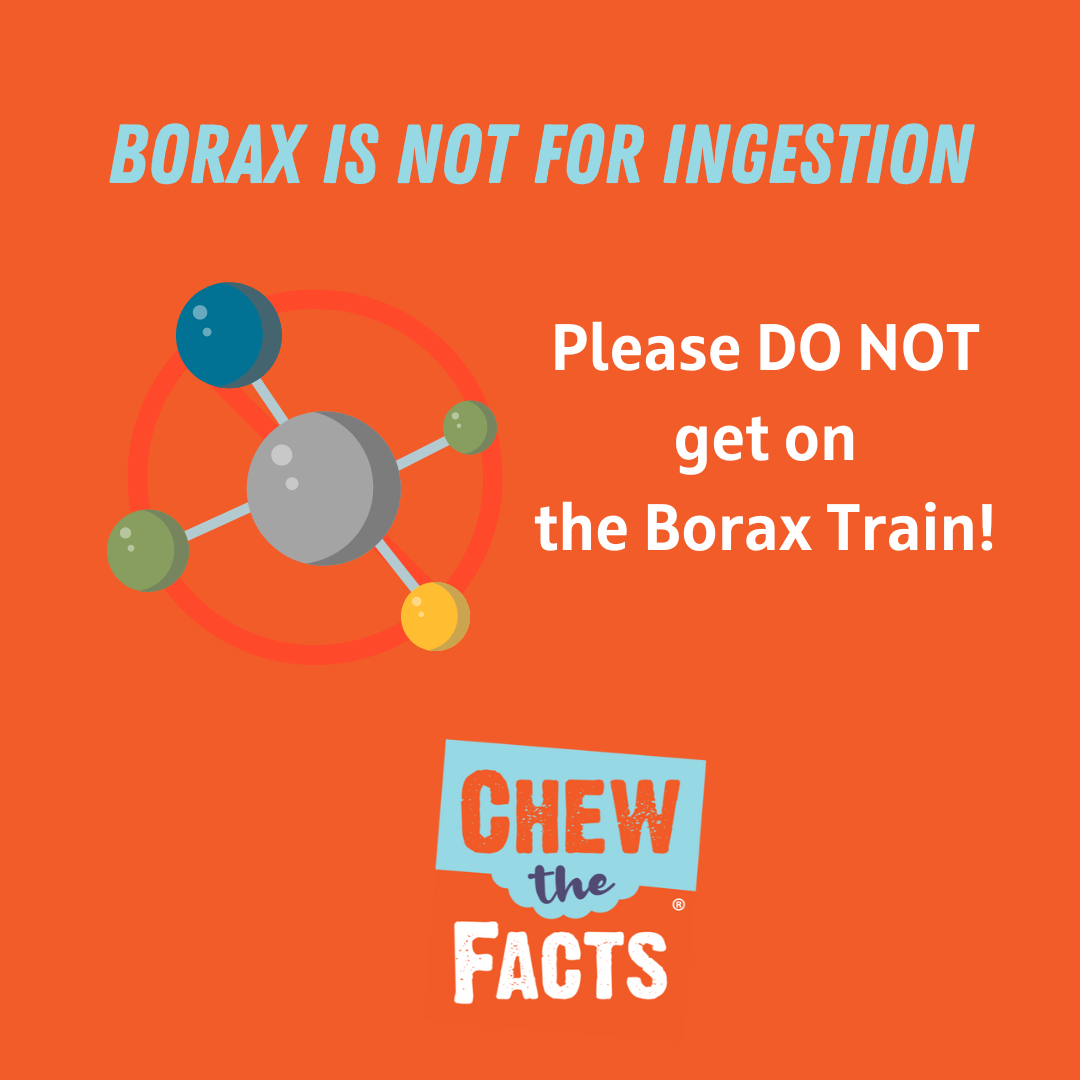Table of Contents
The Borax train? Don’t hop on.
What is happening to people’s trust and ability to understand plausible science?
If you’re scrolling social media lately, you’ve seen either people talking about adding the laundry detergent accelerator into their drinking water as a “wellness remedy”. Hopefully you have also seen a few posts, including this one, telling you why you shouldn’t take their advice.
I recently saw an herbalist’s post about soaking in a borax bath as a method to “detox”. She claims it “removes the heavy metals from your body” and “helps pull out nanotechnology in the skin”. She also recommends these soaks for toddlers and children with autism.
Big Words
Nanotechnology is the science of manipulating atoms and molecules in the nanoscale, so I don’t know what this “influencer” is talking about here – and neither does she. Wellness influencers like to use big science-y words. This makes their claims sound more real, and it’s likely their audience doesn’t understand some of the terms they use, so they simply believe it to be true (and worse, repeat the misinformation to others).
What she probably meant to say was “nanoparticles”, not nanotechnology. Still, her claims are completely bogus.
As they say, the party is in the comments. And for this post they didn’t disappoint.
Alternative Medicine, Anti-vaxxers, and the Wellness Community
I “did some digging” too and found that in 2021 anti-vaxxers that ended up getting vaxed were bathing in Borax to “undo” the vaccine. It could be a coincidence, but she’s likely referring back to this 2021 trend claiming that a borax bath “took the nanotechnologies out of you”.
Yeah, that’s not how it works.
Save the Borax for the laundry.
Boron – the Nutrient
Some research has suggested that boron could have some health benefits. Some studies have shown that boron supplementation may show promise for people who have osteoarthritis. Researchers believe it may increase calcium integration into cartilage and bone, strengthening these structures in the body.
Dietary sources rich in boron include prunes, apples, bananas, almonds, peanuts, raisins and lentils. A recent study on prunes shows that eating 9 prunes a day may support bone health. One cup of prune juice has 1.43 milligrams of boron.


More Stories
Avocado Cacao Mousse – JSHealth
Janelle Brown on Garrison’s Mental Health Before His Death
How To Finally Beat Insomnia